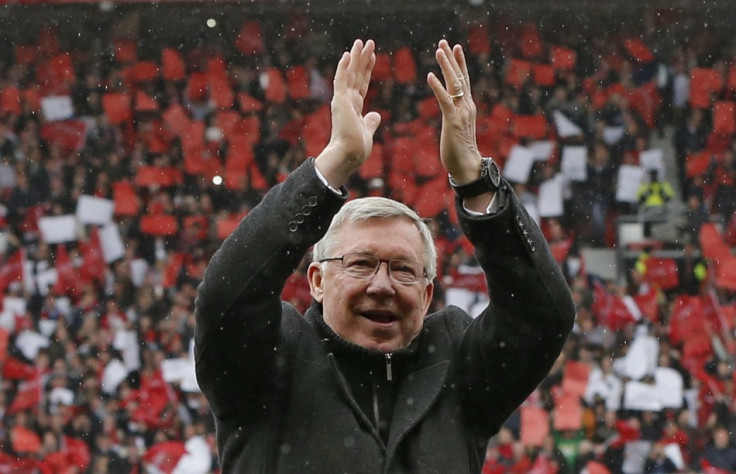Sir Alex Ferguson Delivers Insight into Stam, Beckham and Rooney Fall-outs

Sir Alex Ferguson has revealed how he exerted control over the big egos of the Manchester United dressing room during 26 years at the helm at Old Trafford.
Ferguson infamously forced out a number of high-profile players while in charge including Paul Ince, Jaap Stam, David Beckham and Rudd van Nistelrooy, while his relationship with Wayne Rooney was seemingly at breaking point by the end of his tenure.
With 49 major honours, Ferguson left United in May as the most decorated British manager in football history but has revealed in a report by the Harvard Business Review regarding his managerial style, that dealing with the club's major personalities was central to success.
"If the day came that the manager of Manchester United was controlled by the players - in other words, if the players decided how the training should be, what days they should have off, what the discipline should be, and what the tactics should be - then Manchester United would not be the Manchester United we know," Ferguson said.
"Before I came to United, I told myself I wasn't going to allow anyone to be stronger than I was. Your personality has to be bigger than theirs. That is vital.
"There are occasions when you have to ask yourself whether certain players are affecting the dressing-room atmosphere, the performance of the team, and your control of the players and staff.
"If they are, you have to cut the cord. There is absolutely no other way. It doesn't matter if the person is the best player in the world. The long-term view of the club is more important than any individual, and the manager has to be the most important one in the club.
"Some English clubs have changed managers so many times that it creates power for the players in the dressing room. That is very dangerous. If the coach has no control, he will not last.
"You have to achieve a position of comprehensive control. Players must recognize that as the manager, you have the status to control events. You can complicate your life in many ways by asking, "Oh, I wonder if the players like me?" If I did my job well, the players would respect me, and that's all you need.
"I tended to act quickly when I saw a player become a negative influence. Some might say I acted impulsively, but I think it was critical that I made up my mind quickly.
"Why should I have gone to bed with doubts? I would wake up the next day and take the necessary steps to maintain discipline.
"It's important to have confidence in yourself to make a decision and to move on once you have. It's not about looking for adversity or for opportunities to prove power; it's about having control and being authoritative when issues do arise."
Ferguson's uncompromising relationship with his players was one of the hallmarks of his trophy-laden career at United but among the fondest memories of his spell in charge was his team's never-say-die attitude.
One of the traits of United's dominance of English domestic football was their ability to stage remarkable comebacks, but perhaps their greatest of all came as the club won the European Cup in 1999 with stoppage time goals from Teddy Sheringham and Ole Gunnar Solskjaer against Bayern Munich.
"I am a gambler-a risk taker-and you can see that in how we played in the late stages of matches," Ferguson added. "If we were down at halftime, the message was simple: Don't panic. Just concentrate on getting the task done.
"If we were still down-say, 1-2-with 15 minutes to go, I was ready to take more risks. I was perfectly happy to lose 1-3 if it meant we'd given ourselves a good chance to draw or to win.
"So in those last 15 minutes, we'd go for it. We'd put in an extra attacking player and worry less about defense. We knew that if we ended up winning 3-2, it would be a fantastic feeling. And if we lost 1-3, we'd been losing anyway.
"Being positive and adventurous and taking risks-that was our style. We were there to win the game. Our supporters understood that, and they got behind it. It was a wonderful feeling, you know, to see us go for it in those last 15 minutes.
"A bombardment in the box, bodies everywhere, players putting up a real fight. Of course, you can lose on the counterattack, but the joy of winning when you thought you were beaten is fantastic.
"I think all my teams had perseverance-they never gave in. So I didn't really need to worry about getting that message across. It's a fantastic characteristic to have, and it is amazing to see what can happen in the dying seconds of a match."
© Copyright IBTimes 2024. All rights reserved.







